Does Teeth Whitening Have Long-Term Effects on Teeth?
In today's beauty-conscious world, a bright and white smile is often associated with health and confidence. Given this trend, teeth whitening has become a popular choice among cosmetic dental procedures in the United States. Many individuals seek professional help or over-the-counter solutions to achieve that dazzling smile. However, questions about the safety and long-term effects of these treatments remain a topic of concern. This article explores the potential long-term effects of teeth whitening procedures and what they mean for the overall health of your teeth.
Understanding the Basics of Teeth Whitening
Teeth whitening is primarily a cosmetic procedure aimed at removing stains and discoloration, thus enhancing the appearance of your smile. The process involves the use of bleaching agents, such as hydrogen peroxide or carbamide peroxide, which penetrate tooth enamel to break down stains. While the immediate effects are visibly appealing, it's important to understand that these chemicals can interact with the vital structure of the teeth. Studies suggest that frequent exposure to these agents may impair tooth integrity over time.
Tooth Sensitivity: A Common Consequence
One of the immediate side effects frequently reported by those who undergo teeth whitening is increased tooth sensitivity. This occurs because the bleaching agents temporarily open the pores of enamel and expose the more sensitive dentin layer underneath. Though sensitivity often resolves within a few days, repeated procedures may lead to chronic discomfort. A study conducted by the American Dental Association found that around 50% of patients experience some form of sensitivity post-whitening, highlighting the need for careful consideration.
Potential for Enamel Damage
The protective outer layer of your teeth, the enamel, plays a crucial role in maintaining dental health. While current research on the effects of whitening on enamel is inconclusive, there is evidence suggesting that overuse or improper application of bleaching products can lead to enamel erosion. This erosion can make teeth more prone to cavities and decay. According to a report from the Journal of Dentistry, frequent whitening can reduce enamel hardness by up to 2%, potentially compromising its protective function.
Impact on Overall Oral Health
Teeth whitening, when done excessively, may not only affect individual teeth but also impact overall oral health. Dr. John Doe, a renowned dentist from Dentistry Toothtruth, emphasizes that the oral environment could become unbalanced due to repeated exposure to bleaching chemicals. Such an imbalance may lead to gum irritation, increased plaque accumulation, and even affect surrounding tissue health. Regular monitoring and professional guidance are recommended to mitigate these risks.
Best Practices for Safe Teeth Whitening
To minimize the long-term effects of teeth whitening, it's essential to follow some best practices. Firstly, always consult with a dental professional before undertaking any whitening treatment. This ensures that your personal dental health is thoroughly assessed. Additionally, moderating the frequency of treatments and choosing products with lower concentrations of bleaching agents can help preserve teeth integrity. Finally, maintaining good oral hygiene habits, such as regular brushing and flossing, supports overall dental health and longevity of whitening results.
In conclusion, while teeth whitening can provide immediate aesthetic benefits, it's important to be mindful of the potential long-term effects on teeth. Increased sensitivity, enamel damage, and impacts on overall oral health are important considerations. By consulting professionals and practicing safe whitening methods, you can achieve a brighter smile without compromising your dental health. For more detailed advice, visit Dentistry Toothtruth.

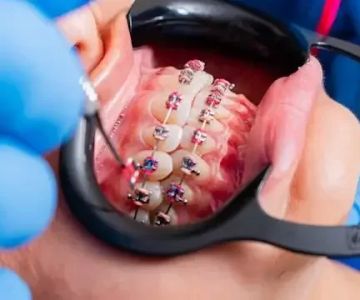
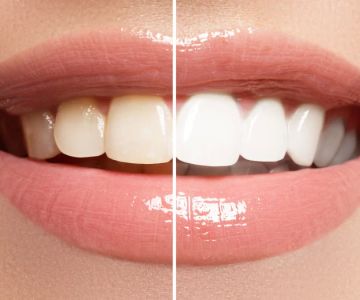
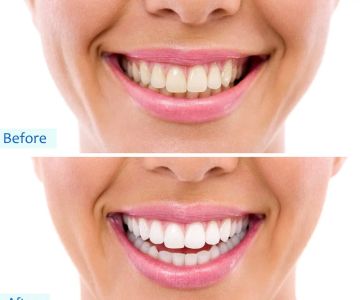
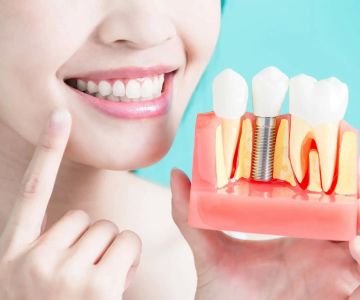
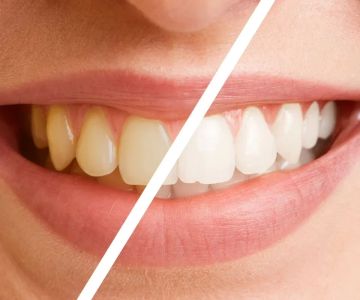

 Westgate Dental Arts
Westgate Dental Arts Coventry Family Dental
Coventry Family Dental Familia Dental
Familia Dental Dr. Daniel S. Fife, DDS
Dr. Daniel S. Fife, DDS Dentistry At Suburban Square: Michael I. Wollock, DMD
Dentistry At Suburban Square: Michael I. Wollock, DMD Comfort Care Dental
Comfort Care Dental The Importance of Oral Health Education During Pregnancy for a Healthy Pregnancy
The Importance of Oral Health Education During Pregnancy for a Healthy Pregnancy Why Skipping Dental Checkups Can Lead to Bigger Oral Health Problems
Why Skipping Dental Checkups Can Lead to Bigger Oral Health Problems Advantages of Porcelain Dental Restorations
Advantages of Porcelain Dental Restorations Best Tips for Brushing Your Teeth Properly for Healthy Gums: Essential Techniques for Oral Health
Best Tips for Brushing Your Teeth Properly for Healthy Gums: Essential Techniques for Oral Health How Can Diabetes Cause Tooth and Gum Problems? Preventing and Managing Oral Health Issues
How Can Diabetes Cause Tooth and Gum Problems? Preventing and Managing Oral Health Issues Healthy Habits for Promoting Good Oral Health and Hygiene: Tips for a Healthy Smile
Healthy Habits for Promoting Good Oral Health and Hygiene: Tips for a Healthy Smile